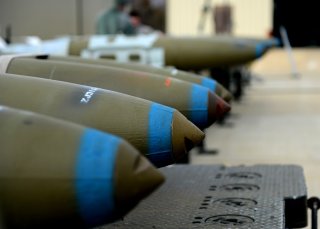Can Israel Defeat Iran’s Precision Guided Missile Threat?
With Iran’s help, Hezbollah has recently explored ways to manufacture PGMs in Lebanon to avoid Israel’s effective grey zone campaign to disrupt the proliferation of advanced weapons from Iran to its regional proxies.
“I think that every day that passes brings us closer to the stage where we will have to deal with this threat in one way or another,” he adds.
Multiple disclosures by senior Israeli officials of PGM production sites in Beirut are part of the “cognitive” struggle by Israel to expose the other side, reveal that its activities are visible, and create both an Israeli and global consensus against PGM force build-up, he explains.
Shohat agrees that the question of a preemptive strike is very difficult to answer. Like Haimovich, he points to Israel’s preemptive campaign in Syria as “putting us in a better opening position” for the next war, meaning that the PGM threat is “less severe than it would be otherwise.”
“While no campaign delivers 100% success, I believe there have been successes here, and there is no doubt that Israel reduced the threat, in relation to its potential, in a dramatic manner,” says Shohat.
The campaign is about how much the threat can be delayed and reduced, he says, before concluding: “It prevented a very bad picture from forming, which we otherwise would have had to face. To a certain extent, the preemptive campaign is an application of the lesson that the IDF learned between 2000 to 2006, when Hezbollah was allowed to build up a large arsenal without challenge.”
Yaakov Lappin serves as in-house analyst at The MirYam Institute.
Image: Reuters.

